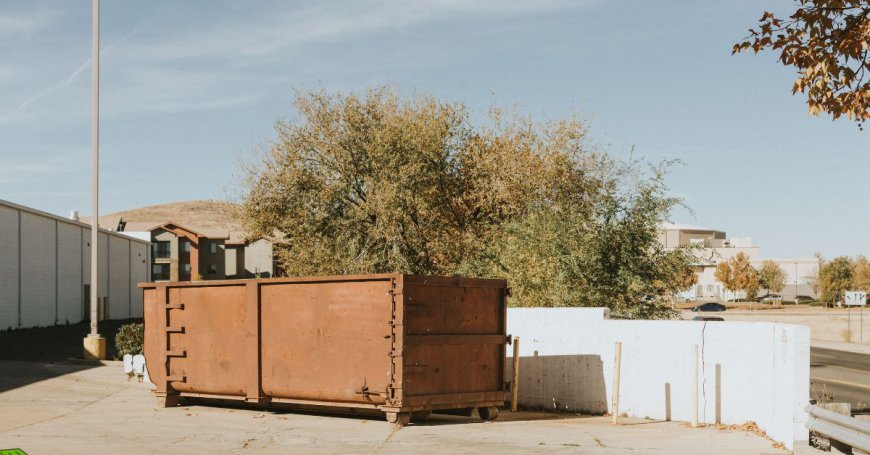Are there restrictions on what I can put in a dumpster rental in Fort Worth?

When planning for a renovation, construction project, or even a thorough spring cleaning, renting a dumpster can be a lifesaver. It provides a convenient way to dispose of large quantities of waste quickly and efficiently. However, before you start loading up your dumpster with everything you need to get rid of, it’s crucial to understand that there are certain restrictions on what you can and cannot dispose of in a dumpster rental in Fort Worth.
What Can You Typically Put in a Dumpster?
Dumpsters are versatile for handling various types of waste, but there are general guidelines that apply to almost all dumpster rental services in Fort Worth:
-
Household Junk and Debris: This category includes items such as old furniture, appliances (excluding certain hazardous ones), and general household clutter.
-
Construction Debris: Materials like wood, drywall, flooring, and concrete are usually accepted. These materials are common in renovation and construction projects.
-
Yard Waste: Branches, leaves, grass clippings, and other organic materials are generally accepted in dumpsters. They are often disposed of in designated landfill sites or recycling centers.
-
Heavy Items: Large and heavy items such as bricks, rocks, and dirt may also be allowed, but some rental companies may have weight restrictions or require separate containers for these materials.
Understanding Prohibited Items
While dumpsters are versatile, there are several items that are typically prohibited due to safety, environmental, or regulatory reasons. It’s important to be aware of these restrictions to avoid potential fines or delays in your project:
-
Hazardous Materials: This category includes substances like paint, chemicals, pesticides, oils, asbestos, and propane tanks. These items pose significant risks during transportation, handling, and disposal and often require specialized disposal methods.
-
Electronics and Appliances with Refrigerants: Items such as refrigerators, air conditioners, and freezers contain refrigerants or other hazardous components that need proper disposal to prevent environmental harm.
-
Batteries: Batteries from vehicles or household items contain toxic chemicals that can contaminate soil and water sources if not disposed of correctly.
-
Tires: Disposal of tires often requires special handling due to their size, material composition, and potential for environmental impact.
-
Medical Waste: Items like needles, syringes, and other medical supplies must be disposed of according to specific regulations to prevent health risks to waste handlers and the public.
Local Regulations and Policies
In addition to these general guidelines, it’s essential to check with your dumpster rental provider in Fort Worth for specific local regulations and policies. Local authorities may have additional restrictions or guidelines that dictate what can and cannot be disposed of in dumpsters within their jurisdiction. These regulations are put in place to ensure public safety, environmental protection, and compliance with waste management laws.
Why Compliance Matters
Understanding and adhering to these restrictions is not just about following rules—it’s about being a responsible participant in waste management and environmental stewardship. Improper disposal of prohibited items can lead to fines, harm to the environment, and pose risks to human health. By complying with guidelines and restrictions, you contribute to safer and more sustainable waste disposal practices in your community.
Tips for Efficient Dumpster Use
To make the most of your dumpster rental experience in Fort Worth, consider these tips:
-
Plan Ahead: Sort your waste before renting a dumpster to ensure compliance with restrictions and to optimize space.
-
Consult with Experts: If you’re unsure about what can or cannot be disposed of, don’t hesitate to ask your dumpster rental provider for guidance.
-
Recycling Options: Whenever possible, separate recyclable materials from general waste to reduce landfill contributions and comply with local recycling regulations.
-
Safety First: When disposing of heavy or bulky items, take precautions to avoid injuries and ensure items are loaded safely into the dumpster.
Conclusion
Renting a dumpster in Fort Worth can streamline your waste management efforts, but it’s essential to understand and follow the guidelines regarding what you can and cannot dispose of. By doing so, you not only avoid potential legal issues but also contribute to a cleaner and safer environment for everyone. Remember, responsible waste disposal begins with awareness and ends with conscientious action.
For more information on dumpster rental services in Fort Worth or specific questions about disposal guidelines, reach out to local providers who can offer tailored advice and assistance based on your needs.

 stanleyburniton
stanleyburniton